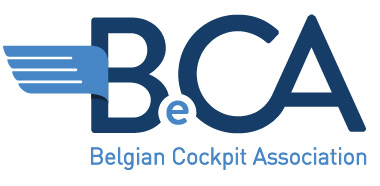Low cost = low safety culture?
London School of Economics study reveals weak links in Europe’s aviation
Low cost and cargo airlines stand out in European aviation – with significantly lower safety culture and high number of fatigued pilots in the cockpit – compared e.g. to network airlines. These are among the findings revealed in the largest ever independent study among pilots in Europe, carried out by the London School of Economics and Politics (LSE) and EUROCONTROL within the framework of the European Commission’s Horizon 2020 (Future Sky Safety programme).
The survey among 7.239 pilots reveals that European aviation can pride itself with a generally good safety culture. Using 11 dimensions to define “safety culture”, researchers polled pilots about their perceptions to build a total score for the level of safety culture across European airlines. The results show that pilots are confident in flying, encourage their colleagues to speak up and believe in their colleagues’ commitment to safety.
While, overall, the study gives a “positive” mark to Europe’s aviation safety culture, a number of worrying findings are highlighted by the research:
› A large majority of pilots is flying while fatigued (58%)
› Only one out of three (39%) believes adequate training is provided when new systems and procedures are introduced
› Less than half of respondents think they receive timely feedback on the safety issues they raise (45%)
› Half of the respondents believe there is no good communication in the company about safety
› Only one out of three (37%) pilots have a high degree of trust in their airline’s management regarding safety
› One out of five (20%) is not satisfied with the level of confidentiality of the safety reporting and investigation processes
› Less than half of the pilots believe the national Civil Aviation Authorities (CAAs) – the primary national actors which oversee aviation – take safety seriously (46%)
Significant differences in safety culture scores depend on factors such as the type of airlines pilots fly for or the type of contract they work on, finds the study. For example, pilots working for low-cost or cargo airlines rate their companies’ safety culture more negatively than pilots working for e.g. network carriers. 42% of low cost pilots and cargo pilots believe their companies do not have sufficient staff to do the work safely, against 20% in network carriers.
Also pilots on zero-hour contracts and self-employed pilots demonstrate a significantly lower perception of safety culture compared to their directly employed colleagues. For example, while pilots directly employed by airlines are fairly confident that safety-related reports are treated in a fair & just manner, their counterparts on atypical contracts have a less confident view (73% vs 53%). A previous study among more than 6.000 European pilots by the University of Ghent already flagged that atypical employment is on the rise and that the type of employment contract can have an impact on the pilot’s safety decisions. The LSE study takes this a step further and links atypical employment to lower safety culture, as reported by the pilots.
Passengers might be surprised by these results but the outcome is no surprise to industry insiders:
“Each and every one of these findings is a potentially fatal flaw in the aviation system”, says ECA President Capt. Dirk Polloczek. “Pilots’ commitment to safety sometimes encounters barriers – and this study highlights very well where these barriers are – crew fatigue, questionable employment models, insufficient trust in management and in national aviation authorities. This study offers the hard evidence about the weak spots of European aviation. And it’s a wakeup call for European and national authorities to take action.”
One of the most striking revelations of the study is that 58% of pilots – irrespective of airline or the employment model – are flying while fatigued. This means 6 out of 10 are tired at the controls of the airplane, a condition, which is recognised as one of the major factors that can impair human performance and is cited as a cause of accidents and incidents in the transport industry. A closer look at the study reveals that the percentage of fatigued pilots is larger in Low Cost Carriers (76%) and cargo airlines (83%). In addition, more than 50% of pilots feel their airline does not take the issue of fatigue seriously.
“These alarmingly high numbers come after the introduction of a new set of European-wide Flight Time Limitation rules, which were supposed to prevent pilot fatigue”, says Philip von Schöppenthau, ECA Secretary General. “The LSE study indicates that something – if not many things – are wrong about the way airlines schedule their flight crew and manage crew fatigue. And the fact that a large part of the pilots, especially in low cost airlines, are not comfortable to complete a fatigue report is really worrying.”
Source: ECA Press Release
